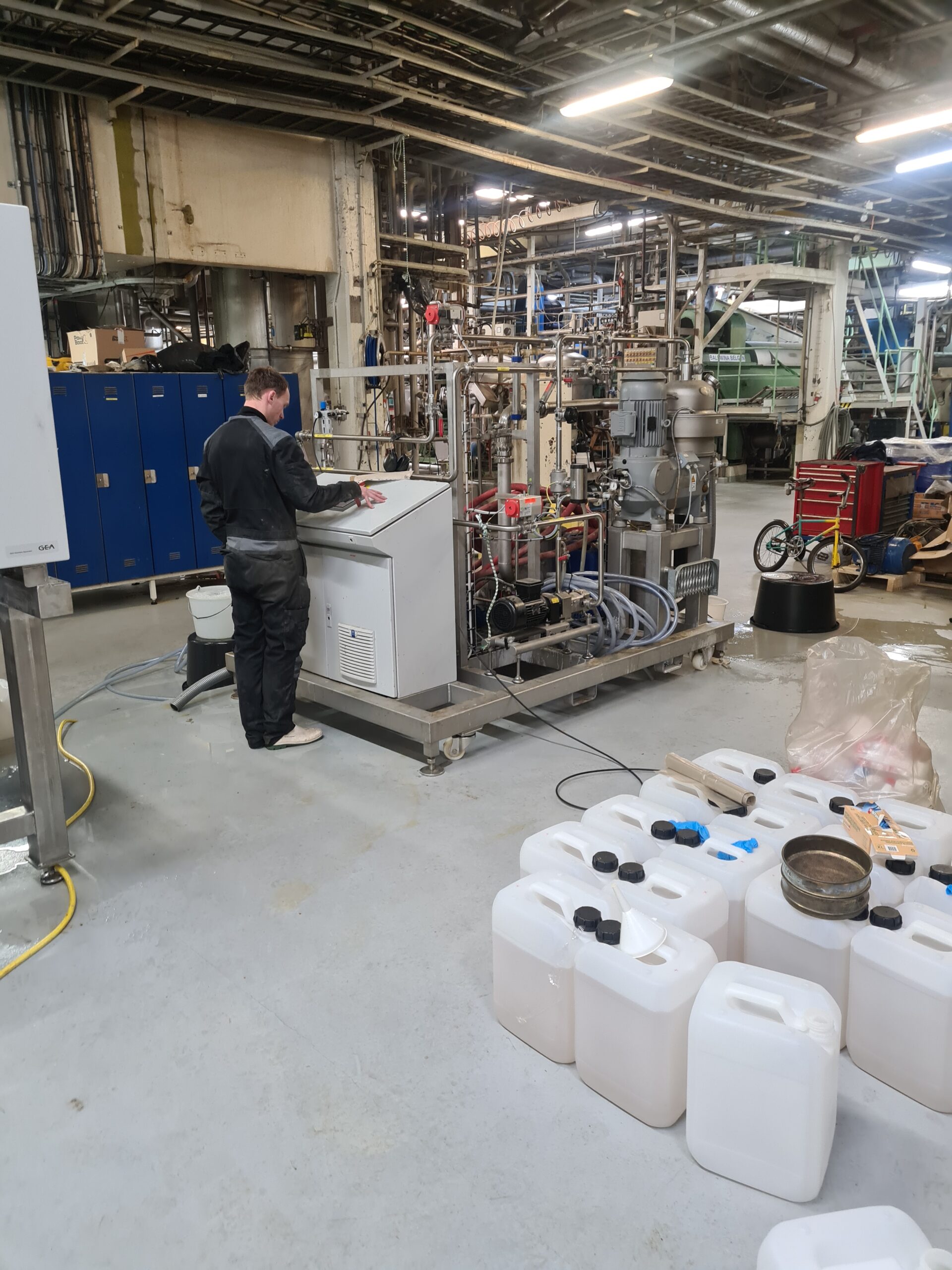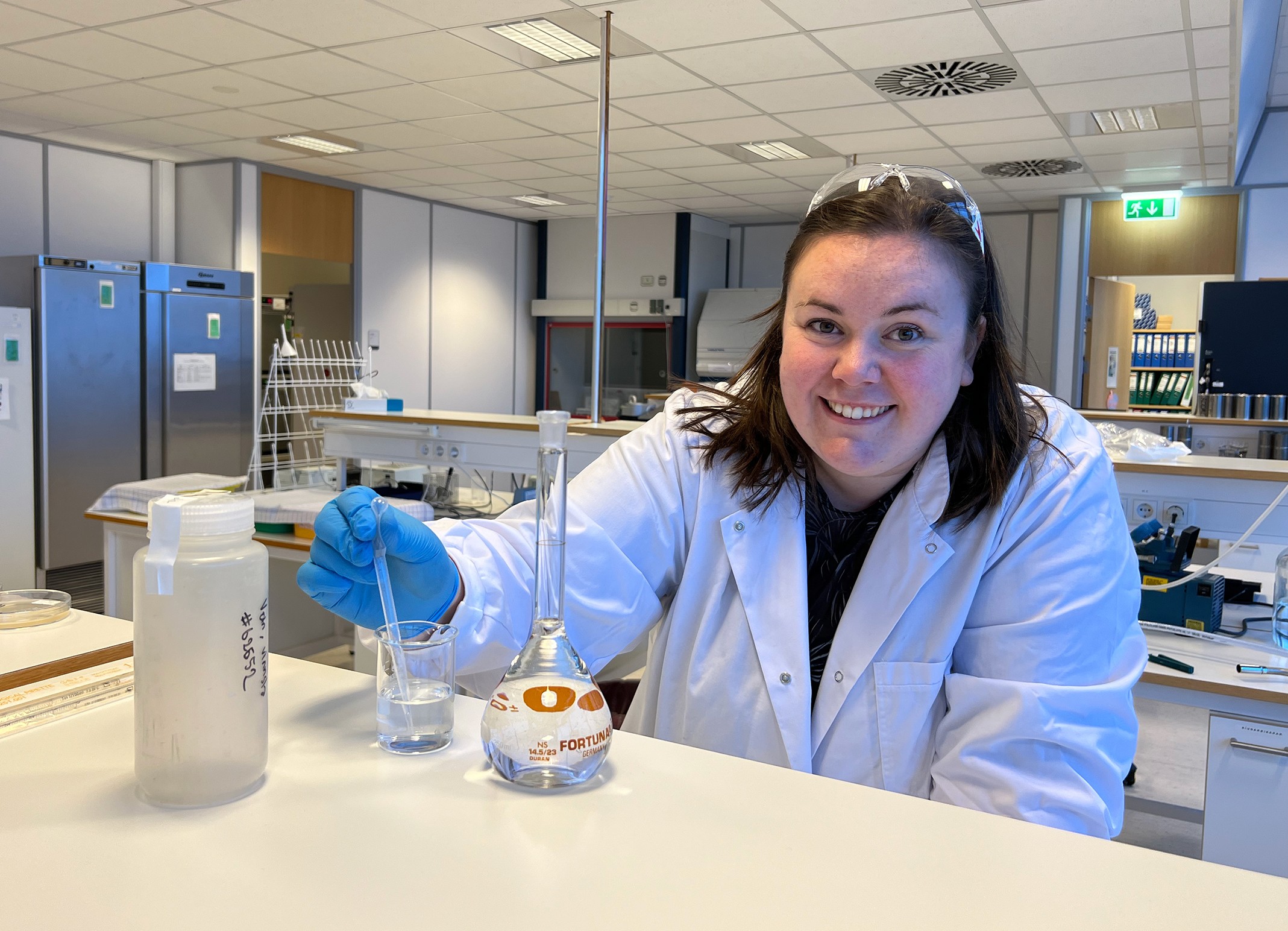Iceland has long been at the forefront of the utilization of so-called secondary raw materials, and one of the raw materials that is interesting to evaluate both with an opportunity for value creation and environmental issues in mind is water from, for example, fish processing plants and land farms. The Accelwater project that Matís is currently working on is about finding solutions to make use of value from process water and the best use of water in the fishing industry and cooking.
Hildur Inga Sveinsdóttir manages the part of the work that Matís does in the project, but it is done in collaboration with 17 parties from five European countries with funding from the European Union through Horizon 2020. "We decided to participate in the project in collaboration with strong industrial partners in Iceland and aimed to use the work in order to assess the opportunities that exist in this field in this country". The project is led by the Greek technology company Agenso and involves many participants, both from industry and the research environment. In addition to Matís, the Icelandic participants in the project are the University of Iceland's Faculty of Food and Nutrition, Útgerðarfélag Akureyri and Samherji Fiskeldi.
But what are side ingredients?
It's really a question of word usage, but it's often talked about side currents or side ingredients. This refers to raw materials that you can get out of processing that are not the main product you are looking for. Fishing and processing is a good example, where fishing is done in order to obtain fish fillets for consumption, while side streams are other raw materials that may have previously been defined as waste or garbage. These can be for example heads, skins, guts or whatever, but when you handle these things right there are opportunities to get a lot of value out of them.
We try to use the word side ingredient because that way we indicate that this is an ingredient that we can use for something, not just "extra junk" that we need to get rid of. We emphasize to stop talking about this as waste or rubbish because it often evokes negative mental associations that give a wrong image of the raw material. For example, in recent years, a variety of valuable products have been developed from fish roe, which in the past would have been thought to be impossible.
Fresh water use in food processing and better utilization
The main goal of the project is to use value from water and reduce fresh water consumption during food processing. Foreign partners are working on experiments within the value chain in tomato growing, meat processing, the dairy industry and in brewing. In Hérland, emphasis is placed on land cultivation of whitefish and land farming of salmon. Emphasis has been placed on assessing the situation by analyzing the environmental impact and use, then which resources are used in these different processes, and then what possible opportunities exist for saving water and energy resources on the one hand, and on the other hand what possibilities there are for value creation from the main water streams.
The project is still ongoing and there is more than a year left of the planned work. The results that have been collected so far show that Icelanders generally use a lot of water during processing and there are opportunities to reduce that use, but the methods that are planned to be evaluated in the project are being developed and it will be exciting to see what they deliver. In addition, there are great opportunities in relation to the utilization of side streams from land farming, especially aquaculture sludge or aquaculture manure, which contains a large amount of valuable nutrients that can potentially be used to make fertilizers, for example. Experiments and analyzes of the opportunities that lie in that raw material are currently underway, along with an assessment of their safety.

Water is a valuable resource
The discussion that has been created about the project keeps alive the important fact that we must not take it for granted that here in Iceland there is good access to the resource that is clean fresh water and we make sure to always use it as sparingly as possible. The project has also entered into an important discussion related to the development of rural agriculture in this country.
results The results of the project will be published in open scientific publications and presented to relevant stakeholders as appropriate so that they will be useful to other parties in the industry in Iceland and abroad. Results will also be useful for policy making and setting up and reviewing processes in fish processing and land farming, the latter of which is the fastest growing industry in Iceland today.
A podcast about Accelwater
Hildur Inga was an interviewee in Matvælin, Matís' podcast about research and innovation in food production these days. There she told about this interesting project and her passion for delivering the content of the Accelwater project clearly and surely shone through. The episode is both informative and refreshing, but it is available on all major podcast stations and in the player below.
Project page
Accelwater's progress can be followed on its project page here: AccelWater and on social media.

